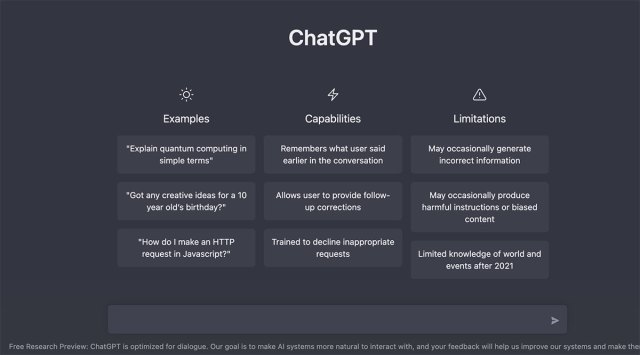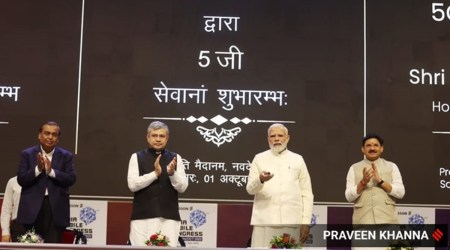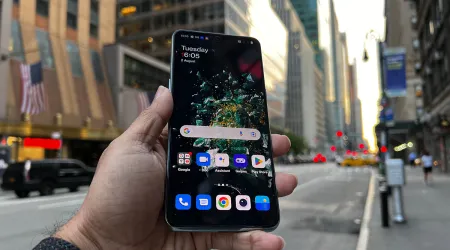- India
- International
ChatGPT hit 1 million users in 5 days: Here’s how long it took others to reach that milestone
ChatGPT crossed the one million user mark in just five days after it was made public in November 2022. How does that compare to other companies in the world of technology? We take a look.
 ChatGPT had hit the one million users mark in just 5 days. (Express photo)
ChatGPT had hit the one million users mark in just 5 days. (Express photo) ChatGPT has become one of the biggest buzzwords for this year with the conversational AI chatbot seen as a revolutionary moment in the world of technology. In fact, some predict OpenAI’s ChatGPT will mark the end of Google Search as we know it, and the product has already set alarm bells ringing at the search giant. Interestingly, ChatGPT crossed the one million user mark in just five days after it was made public in November 2022. But how does that compare to other technology companies say, Netflix or Spotify or Facebook?
Facebook, Instagram’s one million mark
Facebook and Instagram are two of the most important apps in the world of social media, but it took both of them several months to reach the one million user base mark. The Instagram app was launched in October 2010, and yes it was iOS-exclusive at the time. It took the app around two months or so to cross one million downloads– this was around December 2010.
However, Instagram’s Android app — which was launched in April 2012, crossed one million registrations on Android in just 24 hours hours. So yes, ChatGPT has not broken the record that Instagram’s Android app set when it was rolled out. But do keep in mind that with the Android app, a lot of people were waiting for Instagram to come to their phones, which explains the high number of downloads. In comparison, Facebook — which bought both Instagram and WhatsApp— crossed one million users in around ten months after its launch in February 2004.
Spotify hit the one million user mark in five months
Spotify is one of the world’s most popular music streaming services, but getting to one million users and later one million paid subscribers was not an easy task. Spotify launched in October 2008 and reached a ‘one million user base’ in March 2009 or nearly five months after its launch. But it took the company a longer time to get to one million ‘paid’ subscribers and it achieved this only in December 2011. At the time, Spotify was limited to Europe, including the United Kingdom as well. Of course, Spotify has expanded in a big way since then and now has 182 million subscribers worldwide.
Netflix hit one million in 3.5 years
For Netflix too, getting to the one million subscriber base was a much tougher task, and it took the company close to 3.5 years to get to this point. The company started in 1999 and in February 2003 is when it crossed the one million paid subscriber mark. In February 2003, Netflix had 1,009,000 paying subscribers, according to its quarterly results. Of course, for Netflix, it was harder given it was also about getting users to pay for the DVD rental service, which was what the company started out as first. Netflix only transformed into an online video streaming service in 2007 and that is what we know it for today.

Also read: What is OpenAI’s ChatGPT chatbot, why it has become a viral sensation
ChatGPT hit the one million mark in just a week
OpenAI’s ChatGPT hit the one million mark in just five days after it went public, according to company CEO Sam Altman who revealed the information on Twitter. It is not clear how many people are using ChatGPT now, but clearly, the number of users is fairly high given how viral the tool has become. Also, ChatGPT continues to face some downtime likely due to user overload. Altman had admitted that they would have to monetise the tool at some point given how the high computing costs of running all of those queries.
More Tech
Apr 26: Latest News
- 01
- 02
- 03
- 04
- 05
































